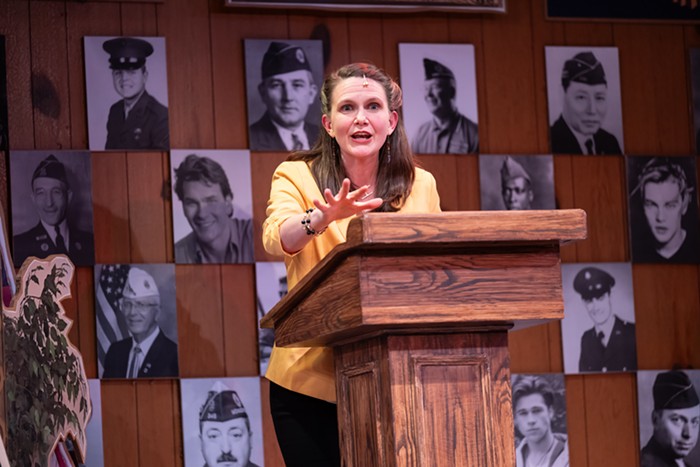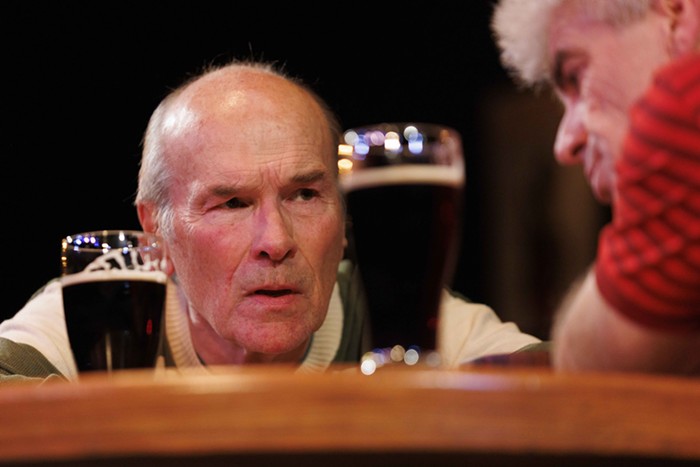We're all a little bit crazy, but isn't that what makes life interesting? In CoHo Productions' latest effort, Tales of Ordinary Madness, twentysomething slacker Peter (Brian Allard) is living evidence that truth is stranger than fiction. His blood-obsessed mother (Dalene Young) has taken to barking; his meek father (Michael Chambers) keeps trying to fit a light bulb into his mouth; his violent neighbors (Steve Boss and Tonya Jone Miller) pay him to watch them have sex; his bland boss (Greg Alexander) admits a fondness for little boys as casually as he would a kind of doughnut, and his socially stunted best friend (Shuhe Hawkins) has modified his sink into a sex toy. Indeed, Peter seems to be the only normal person in his world.... That is, until he starts seeing inanimate objects come to life.
It's a premise that could just as easily be set in Portland as in Prague, where it takes place. With this fresh, well-scripted dark comedy, Czech playwright Petr Zelenka shows that even half a world away, to be human is to be baffled by the world around you. Lewis & Clark College theater professor Stepan Simek got his hands on this show a few years ago and obtained the rights to translate and produce it stateside. Translation is an art in and of itself, and Simek's work is smart and, with a few exceptions, incredibly fluid. Despite Simek's great translation, the script itself is overly long for what it's trying to accomplish—it would benefit from some judicious edits to improve the pacing and structure, especially in the second act.
Director Simek's large cast works together beautifully, and the production team's thought and attention to detail make this a fantastic example of a true ensemble piece. David Renner and John Gerth have designed a deceptively simple set that becomes a character itself, and the actors use it to great effect. Annie Van Thillo's costumes are hilarious and absolutely appropriate, and Katy Alexander's props tie everything together. It's refreshing to see such a strong piece of new theater, and to be reminded that the world of theater is much bigger than the United States—proving the human experience is universal.


















